Upon arrival at the site I saw that there were three men using a pukat out on the shoreline. A pukat is a long fishing net which requires a number of people to operate. It meant that the place where the Malaysian and Kentish Plovers usually hang out at low tide was occupied, and there was no sign of the plovers all afternoon. This was a big disappointment, as I had been hoping to see whether the birds are coming into breeding plumage.
With this out of the question , I decided to spend some time in my Coffin Mk VIII (see here).
This was moderately successful, in that a small flock of Redshanks came and roosted quite close by, and one or two egrets also spent time fishing in front of me, but I found that lighting conditions were not ideal.
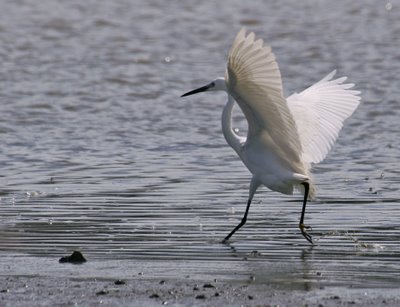
Mudskippers playing catch-me-if-you-can with a Little Egret.
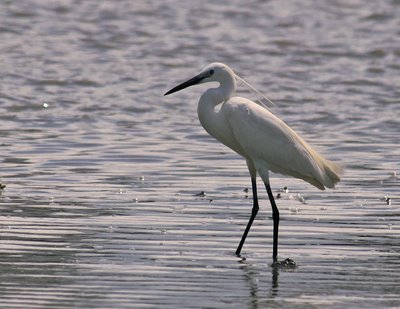
Look out behind you!
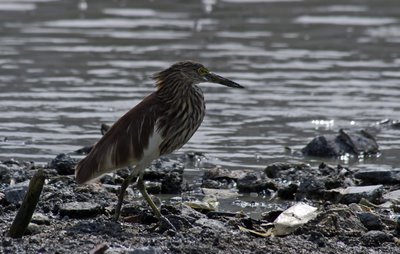
This Chinese Pond Heron is not after health food!

A Great Egret admiring its reflection!
The sun went in and out of some ominously dark thunderclouds, which at times gave some pretty lighting.
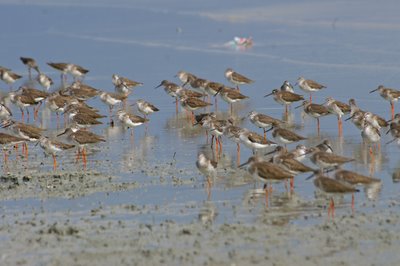
Part of the flock of about 120 Redshanks

As usual, the Greenshanks and Marsh Sandpipers kept themselves to themselves
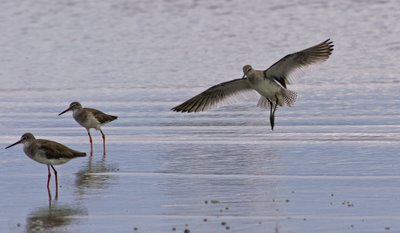
A Redshank incoming
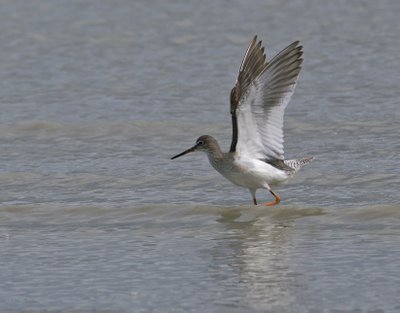
Moving nearer the shore as the tide rises
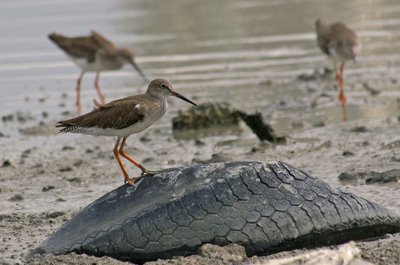
This one eyed the tyre covetously for about 10 minutes before hopping up on top with what seemed to be an air of smug triumph!
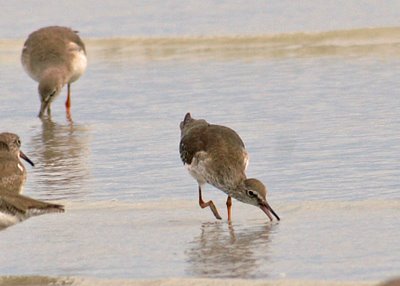
Several birds were busily feeding along the shoreline in the manner of Avocets, running along, bills open, sweeping their heads from side to side.
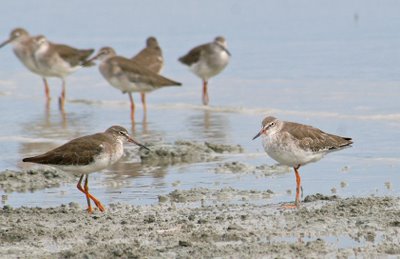
The extent of plumage variation between some birds was quite striking.
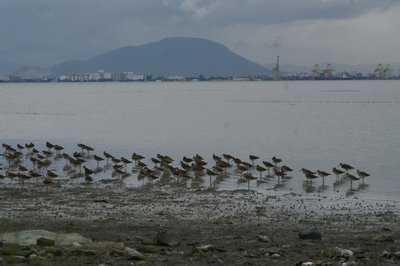
Eventually the clouds blocked out the sun.
The poor light eventually put an end to photographic endeavours, so I returned to the roost site of the other waders (the 'shanks' roost well away from the other waders) to try and do a count.
I got onto the Little Stint that seems to have overwintered here (assuming it's the same bird) briefly before all the birds were put up by a group of Indonesian workers foraging along the shoreline.
The count was a bit disappointing in number and variety:
Great Egret 31
Little Egret 27
Chinese Pond Heron 1
Little Heron 4
Pacific Golden Plover 22
Little Ringed Plover 2
Lesser Sand Plover 2
Greater Sand Plover 1
Red-necked Stint 110
Little Stint 1
Common Sandpiper 4
Marsh Sandpiper 4
Common Greenshank 8
Common Redshank 120
Afterwards I spent some time chatting to the Indonesian workers and showing them the birds through my scope. They said that they were no longer working at the construction site, as their employer had not paid their salaries. So having been brought over here to work, they are left abandoned and incomeless.
Local people frequently complain that house burglaries and petty thefts are committed by Indonesians here. There's an element of prejudice in this view, but no doubt also, some truth. But is it any wonder, I reflected, when there are local contractors who treat their Indonesian workers so unscrupulously?
How can you possible tell the difference between Little Stint and Red-necked in non-breeding plumage?
ReplyDeleteI don't even try..........any tips?
If you scroll down, you can see some shots of a bird I've been calling a Little Stint. This individual has overwintered at the site and is quite distinctive. I'll go into the possible distinguishing features in a future blog entry (coming soon!)
ReplyDelete